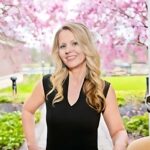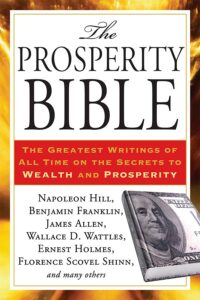Real estate is the number one asset class to build long-term wealth. You don’t need to go big to win in real estate. In this episode, Monika Jazyk, the Founder of RPI Education, shares her insight to help us build a life of freedom through wealth building in the real estate industry. As a real estate investor and wealth-builder, she shares her passive investing portfolio and the misconception that most active real estate investors don’t invest passively. Monika dives deeper into the conversation to explain why she supplements her active real estate portfolio with passive investments. Get a taste of this episode’s flavor of financial freedom on Ice Cream with Investors!
—
Watch the episode here
Listen to the podcast here
RPI Education: Building Wealth And A Life Of Freedom Through Real Estate Investment With Monika Jazyk
We have Monika Jazyk. She is a wife, a mother, and a real estate investor. In this episode, we talk through how she helps her students at RPI Education build out a portfolio in high-growth markets using the philosophy that you don’t need to go big to win in real estate. We also have a conversation about her passive investing portfolio. It is a misconception out there that most active real estate investors don’t also invest passively. She talks us through the reasons why she supplements her active real estate portfolio with passive investments. Monika, welcome to the show.
Thanks so much for having me.
We like to start with the difficult questions here. What is your favorite ice cream?
My favorite ice cream is cookie dough ice cream.
You are joining us from Toronto or right outside of Toronto. If we are ever in that area, where is the best ice cream place we should go?
It would be gelato in Markham Main Street. It is a little off the edge of ice cream but it’s still at accounts as ice cream to find.
We had a fellow Canadian on the show a couple of months ago, and he said gelato in Main too. It must be pretty darn good up there.
It is only one shop. In Markham, where we live, we have investment properties right around there. We are Airbnbing some things. We are always telling them to go to gelato on Main.
Tell our readers, what is the scoop? What do you do now?
I’m a real estate investment specialist and wealth builder. We try to help at RPI Education. Everyday, people invest in the top 2% by primarily investing in real estate and alternative investments.
Part of that alternative investment is real estate. I would like you to take us back. Where is your real estate journey begin?
Our real estate journey began several years ago when we realized that we had to start investing differently. We were trying to invest traditionally through banks, traditional savings, spending less, trying to make more, and spending our wheels. I wanted to be a stay-at-home mom, and my husband had a great income. We were trying to make the most of this one income but we still weren’t hitting these savings goals that we needed to, such as a healthy retirement. We weren’t able to help our kids out. We were still even, in a sense, living paycheck even though he was making great money.
When 2008 hit and all of our savings that we saved the traditional way, our meager savings that my dad disappeared overnight. We realized we needed to start doing something differently. We need to start acting and investing differently to get the results that we want to get. That was freedom in our life. If I wanted to continue to stay home, I would be able to do so. It hit me the real point, how important that was when I realized that I was the financial plan.
If I wanted to be able to retire and help my kids out, I had to go to work full-time and would be making over six figures as well. What society do we live in if it takes two 6 figures to get by? That is what irked me. I thought, “There are other people who are doing this and living incredibly wealthy lives. They have this time, money, and freedom in their lives. We need to do that.” That is when we started learning how to invest in real estate.
2008 and 2009 was a scary time to invest in real estate. It felt like the real estate market was turning to an end. I’m sure you explored a lot of different options there. Why did you ultimately land on real estate?
2008 and 2009, when everything went bye-bye for us. Eventually, I don’t know what happened but the book, Rich Dad Poor Dad, sometimes around that time, crossed my desk. All of a sudden, the financial literacy, everything I had learned and been practicing for the years before that, trying to help our family build wealth, realized it was all wrong. The book made me do a total of 180 in regard to finances and points out that real estate is the number one wealth builder.
We didn’t start investing immediately that year. It was in 2010 when we started to invest in real estate. Things were a little bit better then. That is when the light bulb moment happened during that time. After reading that book, my husband and I were both on the exact same page where we knew, and it was instant. He came home one day and was like, “We need to buy a property.”
All of a sudden, it went from this blurry dream that always seemed reserved for rich people, not for people like us. Who are we to think that we were these real estate investors? We didn’t have any knowledge, time, and money. We lost all our money in 2008. It always seemed like something reserved for the ultra-wealthy. The problem was that we didn’t know how it worked.
I thought you had to buy the house next door. That is one thing. The second thing is I thought you had to buy things outright. We lived in an expensive area. We could hardly afford the house we had. How the heck are we ever going to afford another house? We had none of these skills that are important for everyday people to be aware of. It doesn’t take a lot to build great wealth through real estate. We show people how to unmask an amazing amount of wealth, a multimillion-dollar retirement, and even with one property.
It is funny that you mentioned Rich Dad Poor Dad. If you are a reader out there and you haven’t read that book, stop what you are doing and go read it. I would love to learn the stats on how many real estate investors got involved in real estate because of this book. It changes your mind about how finance is taught versus how it works in life.
It was such an eye-opener, and there were many concepts that were new, even the difference between assets and liabilities. Your house not being an asset and your house being a liability. It is incredible everything that Robert Kiyosaki taught. He is one of my heroes. I met him and had a photo with him. I was starstruck, and I could hardly speak.
I would love the opportunity to interview or maybe write a thank you letter to him and do what he is doing, even carry on that legacy. Our goal is to fill this wealth gap by sharing this knowledge and building on what he is teaching. He is going forward. He is way past real estate. He is revolutionary. He goes, “Steam forward.” He has done many other interesting concepts.
What do you do with real estate? Bringing many other interesting concepts and perspectives to people to show people to challenge the status quo. Don’t eat what everyone is feeding you in this day and age. have a hard look and invest in yourself. Learn some different perspectives, and learn how to advocate for yourself. Vaughan and I used to sit in the back a lot more and take what was given.
In reality, you got to look out for yourself. No one is going to take care of you. You need to create your own government and figure out, “What do I need to do to help me and my family move forward? Once you introduce and take that time for yourself to learn different personal and knowledge and get the support you need, it is amazing what can be achieved like what Robert achieved in his stories.
Even if you don’t have a strong interest in finance like probably Monika and I do, you are in charge of your own financial future and financial independence. I would encourage you to try to employ some of the strategies that your read on the blog to take control of your financial future. Everybody knows my story at this point where. I was working at W-2, a previous job that I had where I was going to receive a life-changing commission check, and out of nowhere, one VP made a call, and I’m no longer getting that money.
Whose fault is that? I could be mad and sad about it all day long but that opened my eyes to say, “I could play the safe route all day long for the rest of my career. It still did not end up the way I wanted it to. I might as well take a risk and learn these different strategies to take my own financial future into my hands.”
You don’t even have to leave your job to increase your financial literacy and learn things. If you are not interested in money, what are you interested in? It doesn’t mean you have to love money or only focus on money but the way that money works. Money is a tool to help you get that freedom in your life. Everyone needs to stop and ask themself, “What am I trading my life for?”
You don’t have to leave your job to increase your financial literacy and learn things.CLICK TO TWEET
Every day, people trade their life for something. Some people think that they have to go through and do what they are doing every day but they don’t have to do anything. Every day, you wake up, you have a choice, and you are in the driver’s seat. Things might get tough, and it might get hard for you. Let’s pretend you don’t go to work or you lose your job. That is going to be a difficult time for you. I remember Vaughan and I used to look at his job and be grateful he even had a job. We used to speak like that. We were like, “At least you have a job to do.”
Now I look back to that many years ago and think, “What mindset would I was then to now?” I wake up every day, and I’m like, “What do I want to happen now? What life do I want to create for myself?” Every single person, regardless of where you guys are now, whatever anyone is experiencing, no matter what your financial situation is, you can do that. You can put yourself in the driver’s seat and steer your own life in the direction that you do not have to play the cards that you have been dealt.
You have two different sides to your business. One of them is the investing side. You are an active investor, a passive investor, and got RPI Education. I want to set RPI Education to the side and talk about what you are invested in now. Could you give us a broad-range view of what your portfolio looks like? We will then go into the things that you are seeing and the different strategies that you are employing.
What works for me now is investing in high-growth areas. It’s close to us. I closed a property in a different province, and I’m building 27 homes in Florida. That is not close. My most exciting acquisition was an amazing property right in Downtown Toronto. We haven’t closed on it. We are closing on November 18th, 2022. We received that for about $150,000 below fair market value, which was exciting.
Prior to that, in July 2022, we closed on a property right near Markham Main Street near gelato in Main. It is a converted duplex, which I’m excited about. Once again, we received that property for way below fair market price. These are expensive properties, still. That was an $800,000 property but we had it reappraised for $1.1 million. Whenever we are buying in these areas, we are always looking for the best properties but the best deals. We also purchase another deal of Markham right down the street from that one. We received that for $770,000, and we are flipping that for $1.4 million in twelve weeks.
These are the things that we love to focus on now. We started investing in real estate. We were investing in faraway places for the cheapest price possible and trying to get as many as possible. We wanted 100 homes. Having 100 homes is like having 100 kids. Anyone who has read our book, Real Estate Mistakes, will hear I probably lost all these beautiful blonded hairs. It fell out. I was probably bald several years ago. That is where we started. Whereas now, we are on this journey to create a $20 million portfolio through ten awesome acquisitions. We are well on our way to that. That is exciting for us to do and manage. Those are our active investments.
On our passive investments, we are diversified all across the board. We love self-storage. We were chatting about that before because I know that is your cup of tea. We love car washes, anything with real estate and business components on it, apartment acquisitions, and all that but I don’t do that myself. I invest that as a passive investor through cash and also through our registered funds.
Those retirement funds that we lost so much money on, our kids’ education funds, Vaughan’s group fund that he got from diligently employer matching for years and pretty much put a zero in 2008, we re-controlled it by self-directing it. All of that allowed us to accrue great wealth. I’m continuously diversifying in these types of investments, which to me is exciting because I don’t have time to manage an apartment building, car wash, and self-storage facility.
My great friends and fellow real estate experts, who I have time to get to know, and time to vet their opportunities, give me a lot of control over those investments. I’m able to write a check, and that is when I get that great financial freedom because my money is working for me while I’m sleeping. That is the greatest indicator of wealth.

RPI Education: My money’s working for me while I’m sleeping. That’s the greatest indicator of wealth.
Lastly, one of my most favorite things to invest in is insurance. We have created infinite banking policies, which my husband and I both have been overfunding from our flips, BRRRRs, and all this equity we are getting, which allows us to buy our net worth, not just build our net worth. Our oldest child turned eighteen in 2022. He has his own infinite banking policy. That was one of his financial moves, which was exciting.
We believe there are seven wealth keys that we at RPI try to spread. As wealth builders, we actively wake up every day and say, “How am I building wealth now? How can I get my money working for me rather than me working for the money?” We also actively involve our own family in this to show people what is possible. It takes a lot of work, time, and effort to try this all out.
How our company was built was by us figuring all this out on our own. We are surrounded by an amazing wealth team and a community that can help guide us because we are not experts in every single area. They expose us to new ideas, and we personally try them out first. We are the world’s guinea pigs. We were like, “Check this out. We have $0, and now we have $5 million.
What we are doing regarding wealth diversification is we have our active, passive, and insurance. What it takes to build wealth is a diversified portfolio that is not mutual funds. People think of diversification, they think of stocks and mutual funds but you could diversify in a lot more ways than that. You could have a lot more control over it.
You talked about a lot of things that got me excited. High growth markets, which we want to touch into. You only need to own ten properties that could appreciate $20 million or even on the low end. You could have ten that could appreciate the $10 million. That would be a fantastic retirement portfolio. This also has the concept of infinite banking, which our readers know that I’m a huge fan and employee myself. People will have to decide if it is for them but you have to unlearn everything you know about finance at the beginning of this conversation to understand the power there.
Before we get to some of this, I want to dig into this. You are an active real estate investor. This is what you do every single day. You eat, sleep and breathe it but you also have passive investing. You talked about diversification. One of the people I know in the real estate industry has over $1 billion of assets under management, apartment complexes, and self-storage all throughout the United States.
One of the things he talks about a lot is, “I still am involved in 26 different syndications as well as a passive investor.” You mentioned diversity. Is that to diversify yourself away from a specific market or asset class? Talk us through why you decided to as an active real estate investor and also partner up with people to be passive investors.
I remember when I started investing in real estate and heard about apartment syndications and these opportunities to make 8% and 12%, scoffing in the back of the room because I could make 48% and could do this. I can do everything because I’m the greatest. I remember that as the years went over. When you start out in real estate investing, you are excited until you realize that you can play in the sandbox with others.
It doesn’t have to be you creating your time because what I did was I went from not wanting to be a working person so I could be home with kids to a real estate investor that was working 24 hours a day and not being home with kids. I started trading apples for apples for a little while until I realized it’s perfectly fine to be able to diversify with others.
You can create these great active investments for yourself and have a bigger ROI but there is a trade-off there, and it is time. Let’s go back to what you are trading your life for. I wasted three years of my life in real estate investing. I made $1 million mistakes selling our book, Real Estate Mistakes. We made and lost so much money. We got out of the problem through real estate. It made us excellent real estate wealth consultants.
When I started working with one of our favorite business coaches, it got us laser-focused on a less more approach. That is where that saying comes from, “What are you trading your life for?” I’m all about my kids, family, health, and fitness. Apartment buildings would take me a little bit away from that. I pick my projects carefully.
I make sure that they provide a return on investment that is going to be able to provide for my family and give me the financial results that we want without taking over my life. I’m not supplementing another job. Real estate is something that we enjoy doing. When we do it close by, it fits us. When it was far away or a larger acquisition that takes full-time and hours to get that achieved, that is when I outsourced that, and that is when I wanted to start doing passive investments.
Pick your projects carefully and ensure they provide a return on investment that will provide for the family and give the financial results you want without taking over your life.CLICK TO TWEET
I have this concept of ROI. When I say that, most people think of Return on Investment but what I try to do is talk about Return on Intentionality. To your point, with four kids and an active real estate business going on, you probably are pulled in many different directions. If you are a high-income earner out there with kids, you want to be there present for their soccer games and be a good partner for your spouse, friends, family, and things like that. It is not the best use of your time to go spin up an active real estate business.
If that is what you want to do full-time, by all means, do it. I’m not saying that you shouldn’t. I still believe that single families provide a sense of stability in your portfolio. If you want to find your way in diversifying your portfolio into real estate, 99% of people, the best way to do it is to find good operators, markets, and asset classes that you believe in and partner with them. Be the capital partner to them.
It is easy to do, and I love vetting these opportunities. What Vaughan and I primarily do with most of our time is identify high-growth areas and strategies that work and build teams in those areas, investing it in ourselves and sharing it with others. Our days even though we have active investments because we plan them out carefully, it is time sensitive now. We have teams running the investments.
Aside from planning them, figuring out what works, and being able to act when they come, I’m dropping by. I have worked on four properties, and it probably only took about an hour of my day, where I spent three hours on the tennis court. I get to spend an hour with you. I spent an hour at lunch and an hour before you talked to my kids about how their day after Halloween was.
There is a lot more to life than working. There are a lot of high-income earners out there. That is great that they have jobs. We do need people with jobs, and everyone needs entrepreneurs. What people need to remember is how dispensable your job is, whether it is a health issue. People always have these fantasies of leaving their jobs. They don’t want to sit at a beach all day and do nothing but people want to stand for what their life is.
The main problem is not you leaving your job. It’s what happens when your job leaves you. How much wealth are you going to bring in that? Everyone’s first wealth goal should be to supplement or recreate their income or what we call your freedom number. What will it take you every month, so you are not living under a bridge?

RPI Education: Everyone’s first wealth goal should be to supplement or recreate their freedom number.
If you are not going to work every day and not spending all your time doing that, you spend your time doing something but if anything ever happened to you or something where you couldn’t go to work every day or you don’t have a job to go to. What is that safety net for you, and how is it provided? The way people have to start training their minds is by opening themselves up to different residual streams of income.
Passive investments are perfect for that. That is the only investment that works. A lot of people say residential real estate and active real estate is a passive investment but only from a tax point. It is because it takes work unless you are the one there making sure you are managing tenants and putting your blood, sweat, and tears behind that. It is active, and people have to call it for what it is. It is worth it. You will make more money than any job if you do it correctly but it is work. You go to see unless you are a joint venture partner, an equity partner, and writing that check, then it is active.
What I’m hearing is that we are aligned on this idea of, if you like your job, stay at your job. There is nothing wrong with being an employee but the riskiest thing you could do is tie yourself to one income. At the very least, what you should be doing is supplementing it or finding out what your freedom number is and start building those income streams to get there. If your job leaves you, you have options.
What I can say is that there is this subconscious burden on top of you that you don’t even realize is there when you have to think about, “How am I going to put food on the table? How do I put a roof over my head?” I have yet to find words to describe when I finally got to that point where I didn’t have to worry about that. I could be more intentional with my family, friends, activities, and passions that I have but also in my job because of that.
The greatest freedom is going to work every day, knowing you don’t have to be there. That is the ultimate freedom goal right there. We always tell our clients that all the time at RPI, “That is the first thing that you want to be going to.” Do you know how happy you are because of how many people go to their work? I’m here because I have to be. We need people to be working in society. They can’t all be entrepreneurs. If you don’t love your job, you can even switch jobs. You can have that power and freedom. It goes back to designing your life and creating your best life.
You have talked a little bit about high-growth markets, and I’m a firm believer that you should pick the market that you believe is a good core market in a high-growth market to use your words before you start picking the asset classes and the teams because a good market can hide a lot of bad deal-making, in my opinion. When you find that market, a good jockey or a good operator is key because a bad operator could destroy a good deal. If I’m new to this, how do I understand what a good market is or a bad market, a high-growth market, and a non-high-growing market?
It is funny with markets and real estate because everyone was always like, “What markets are going to be better? Where can I invest?” There are always certain places. New places are not going to pop up off the map. Why not go where people want to live? I always try to go back to a commonsensical approach in regard to investing. Go where people want to live. You are obvious. It’s like Nashville, Toronto, and Atlanta. Where are people living? Where are the jobs? What is the economy like? What is happening? Even expensive areas like LA can still be a great place to invest.
It is. What is happening in these areas? What economic indicators are there that there is growth happening in these areas? Where do people want to live? How many jobs are available for these people? Are people migrating or are they leaving? The worst part is when people chase the lower purchase price point homes, that is where they are going to get problematic tenants. They are going to be in areas that don’t have strong economies.
If they don’t have strong economies, they are not going to have jobs. If they don’t have jobs, how are your tenants going to pay you? Also, FYI if these homes are cheap, then who the heck is living in your properties? Why don’t they buy them? That is another thing that I do. I have switched around for our tenant and who we rent to. Who do we create these properties for? I’m going to invest in a high-growth market like Nashville.
For example, if we did Nashville, what strategy would work best there? Who lives there? Music artists and people who want to get into the industry do these things. A lot of people are coming and going. Would that be a great area for short-term rentals? Would that work in that market? What would that look like? Would I like those tenants?
I love short-term rental tenants personally because they are proactive people who are coming and going. You can do fully furnish. You can increase the rent. You don’t have to make a commitment to them. You don’t have to worry about people not paying. There are many different strategies in real estate investing that even if the market is more expensive, what can you start implementing to give what the market needs?
There are so many different strategies in real estate investing that you can start implementing even if the market’s more expensive.CLICK TO TWEET
One thing that I’m excited about, and it is going to be a lot more active, which is happening here, and we have been doing this for a while, is creating more housing. With these interest rates that we have that are going up, I know there are interest rate hikes that seem to be happening all the time. I don’t want to datestamp anything here but they continuously seem to be going up for both of our countries. It is tough for people. There are also signs of economic downturns, pending recessions if we are not already in one, and housing prices dropping. There are a lot of question marks in what is happening. The fact of the matter is that people need homes to live in. This has gone back since the caveman days.
Another key indicator of markets to invest in is affordability. It is not the cheapest home but in the US, my favorite states are places that are below that $500,000 price point between $250,000 and $500,000. That is affordable. You get to this point where it becomes challenging, especially with these high-interest rates. This is where mortgage helpers help.
We are getting out our shovels and construction crews. We will be doing some more small developments where we are going to be creating housing in our area, in particular. We are going to be creating single-family properties or small multifamily with built-in mortgage helpers in the forms of the ADUs. We have been doing basement apartments for years. We are able to do basements here. I know some areas where we invest, you have to do side by side, two units.
Here, the best thing to do is take that 1 family home and create 2 additional units there. It appeals to two people. A lot of people have blended families where they live with their in-laws. They have extended families or relatives that also go on the mortgage. They can do it together. There is enough room for two families or they can get a traditional renter. They can qualify for these mortgages and still live in these areas.
It is not an all renter’s market because we don’t want that to happen either. We want people to be able to afford homes. A lot of people can afford it with a mortgage helper when they are able to rent out these additional units. People have been doing this since the beginning of time. I remember when my grandmother immigrated to Toronto, and this would have been several years ago. They had fourteen people living in that house. They were renting all rooms out.
It is funny because I found a picture of that house, and it’s right in East York, Toronto, for $14,000. You never believe what it said on the back, “Vendor take-back.” They were even doing seller financing long ago when people couldn’t qualify and couldn’t get mortgages. Other people are holding mortgages. Here we are in 2022 going into 2023, and we are still using these strategies. The strategies that save people back then are going to be the strategies that save people now, but a lot of people don’t understand that.

RPI Education: The strategies that saved people back then are going to be the strategies that save people now, but a lot of people just don’t understand that.
I had no idea where you were going with the mortgage helpers but I love that idea. In the US, we would call that like house hacking, finding a way to have somebody offset your mortgage. It is beautiful that you are building those as well. I don’t want to breeze over this topic of high-growth markets. Too often, in real estate, people are looking for the next big city.
What I’m hearing from this conversation is, “People are always going to live in Los Angeles because it’s beautiful to live there. People are always going to live in Florida or near the beaches because it is beautiful to live there. People are always going to live in Nashville, Atlanta, Dallas, and Austin. Stop trying to create a new market or look for these trends.”
You might be able to spot one and be able to accelerate your wealth-building journey because you found one but the risk there is also that it turns into the next Boise, where people moved there because of COVID, and they had the ability to work from home. Now they are being called back into the office, and you see the housing dip there because there is no natural organic reason for people to be living there.
Was that not insane how people moved? They left everything. People moved to Newfoundland. They were like, “You want me back.” I’m like, “Did you not see that coming?” A lot of people were moving to cottage country, city slickers like me and the cottage country, which is great in the summer but in February not so much. They are paying these big prices.
It is amazing how people can be more inclined to act and do something spontaneously silly than taking that risk and expanding their education. Taking the time to figure out how to have a more longstanding plan. I love that Boise example. It is hilarious because no new state is going to come off the map. There are growth indicators. When the industry moves to specific areas, we are going to pay attention to that. Quite often, it has to be the proximity to a major city center where the economics makes sense.
The reason I’m passionate about this was when we started investing. I was investing in a town nine hours North of Toronto. When we got there, the economic fundamentals were fantastic because I was picking up $40,000 homes and renting them out for $1,000 a month. This was great, and I transferred that apartment building and everything.
The economy was on fire but it was primarily mining. I thought the diversity was there but it was not. When our government changed, all of a sudden, all the roads weren’t leading North. They shut up those mines. There was zero in the industry. Those $1,000 a month rents dried up fast because no one could afford to pay them. I had no tenants.
That is why if I was in an area like Nashville and there are all these other different types of the economy there. It is not just the entertainment industry. There are hospitals, schools, call centers, warehouses, and all different types of economic sectors that’s supporting the economy. Do people want to live there? Do you live in these areas? What are the migration patterns in these areas?
We think a new employer is coming to town. I was like, “How many people? Twelve. That is not going to help me. I have hundreds of units here that I need to fill. This is twelve people.” Pay attention to what makes sense to you. Another thing that people need to ask themselves is, “Do I want this? What do I want? If I could do anything and invest anywhere, where would that be?” Once you acknowledge that, your second question is, “How can I make that work?” If you put a little bit of thought into it as people do. Sold everything and moved to Boise. This time we are going to make a good choice. You would be amazed at what you could come up with.
Monika, I want to be respectful of your time and switch us now to our last round. We are calling this the Five Toppings. Our first one is, what is your favorite book or what is a book that you have read that has given you a paradigm shift?
My favorite book is The Prosperity Bible. If you haven’t read it, you better.
I don’t think I have read or heard of it.
It’s incredible. It is a compilation of probably the greatest works on prosperity like Napoleon Hill, Think and Grow Rich, and all these great works. It is a 2,000-page book. It has the size of a phone book. I read it every morning. I have read it about four times. That is how I start every day, reading this book.
Our second one is that I believe that the person you become ten years from now is directly correlated to the habits that you have and the things you do every day. What is something that you do every day?
I do my priming routine every single day, which consists of reading The Prosperity Bible, stretching, manifesting, freezing cold showers, and must-do work. It consists of getting me in peak state every day. I wake up early, around 4:00, and hit the day running. I go full steam until probably about 10:00 at night on work nights.
I’m onboard with all of that. I haven’t gotten to the frozen showers yet. There is one thing I hated as a swimmer my entire life, and that is freezing cold water.
If you are a swimmer, you have a competitive advantage over that one.
Our third one is, what is the best piece of advice you have ever received?
The best piece of advice I ever received was from my mother, who said, “Don’t ever settle for anything less than the absolute best.”
Our fourth one is, what is the thing that you are most proud of in your life?
The thing I’m most proud of in my life is living my life every single day, what I created my life, and doing what I say. When Vaughan and I are going through these real estate investments and trying things out and coaching people, we are authentically doing it ourselves. It is living life authentically in its purest, rawest form and going through life as a student, not as a perfect master. I tell my kids, “I dunno what I’m doing. I’m learning and growing up with you.”
I heard someone say that, “The most successful people in the world are the ones that have a vision of how their life should go and achieve that vision. Whatever that is in your vision.” Our fifth one is if you could sit down and eat a bowl of ice cream with anyone, dead or alive, who would it be and why?
I must go back to Robert Kiyosaki and thank him for writing that book. When I write books, I write in the same language to people. I’m not here to prove how smart I am, how fantastic I am or that I’m this great amazing person that people should strive to be like. Who cares? When we wrote Real Estate Mistakes, I wanted to help people avoid mistakes and share a perspective in Layman’s terms that everyone understands rather than trying to create the sense of the illusion in what I know versus how I can help people. That is my mission in life.
By filling the wealth gap, it is encouraging people to say, “Everyone is equal, and everyone has equal power in them to create their best life if they will tap into it and use their resources.” We are building out resources steadily for people to tap into and making these types of financial literacy commonplace, which Robert Kiyosaki did with one simple book.
Everyone has equal power in them to create their best life if they just tap into it and use their resources.CLICK TO TWEET
He has tons of books but everyone remembers him for that book. That is the person I would like to thank for changing our life. I got to tell Tony Robbins, “Thank you for changing our life.” That was one of the best experiences ever because his head is so big. He was like, “Did I change your life?” I’m amazed that it happened but I love to have that same conversation with Robert Kiyosaki.
Monika, this is a fantastic conversation. If our readers wanted to reach out to you and learn more about you or RPI Education, where is the best place we could point them?
Monika, thanks for coming on.
Thank you.
Important Links
- RPI Education
- Rich Dad Poor Dad
- Real Estate Mistakes
- The Prosperity Bible
- Think and Grow Rich
- https://Twitter.com/RpiEducation
- https://www.Facebook.com/realpropertyinvestmenteducation/
- https://www.Instagram.com/rpieducation/
- https://www.LinkedIn.com/in/rpinvestments/
About Monika Jazyk

Monika Jazyk is a wife and proud mother of four wonderful, yet expensive, children. After the completion of her master’s in teaching and birth of her eldest son, Monika chose to stay home with her growing family, sacrificing income of a full-time wage. To create monthly income to be able to fund immediate and future expenses for her children, Monika and her husband Vaughan chose Real Estate as an investment vehicle to create extra income and build long-term wealth.
Monika is also co-owner of RPI Education, the world’s fastest growing investment community and is on a mission to help everyday people invest like the top 2%! Monika is passionate about helping other people create wealth through Real Estate and alternative investments so they can reach their financial and personal goals






